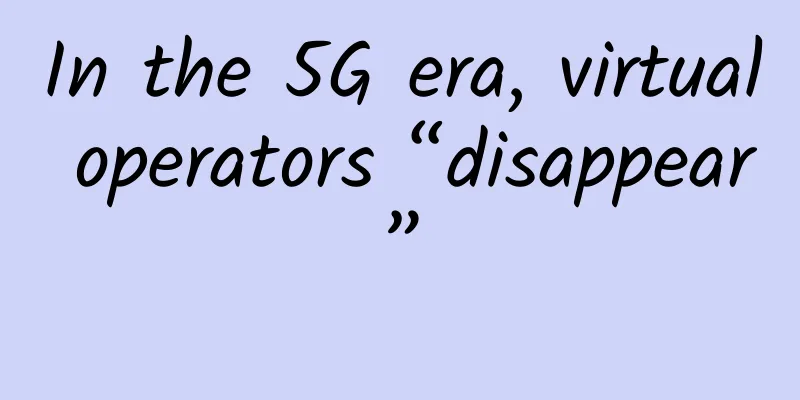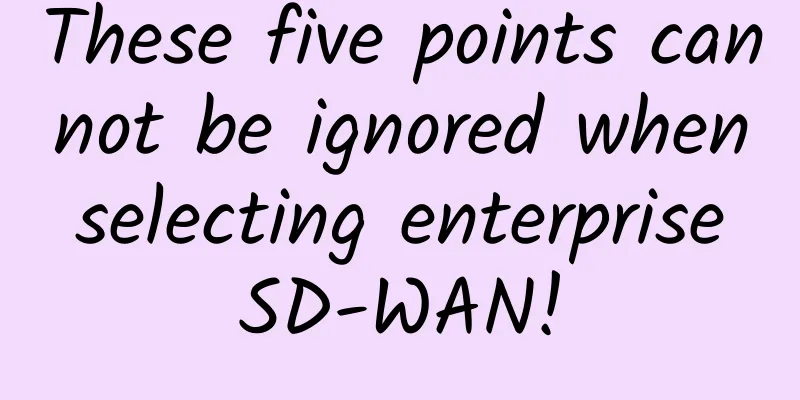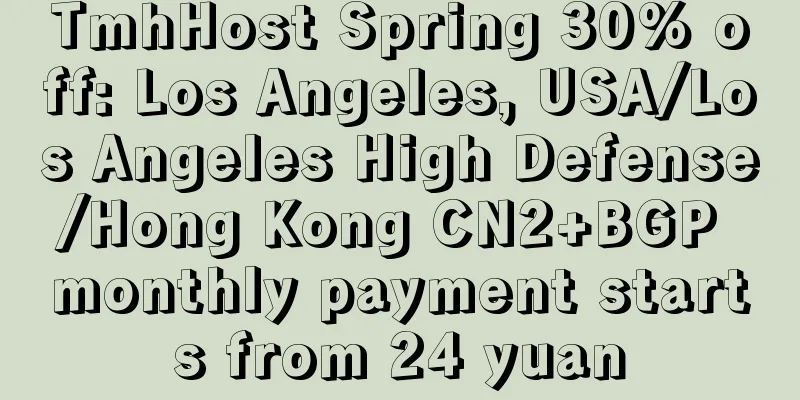In the 5G era, virtual operators “disappear”

|
"In the 4G era, the three major telecom operators ate meat, and virtual operators drank soup. In the 5G era, the operators drank soup, and the virtual operators didn't even have plain water to drink." This is the sigh uttered by a virtual operator to the Blue Whale TMT reporter. In recent years, the concept of virtual operators has rarely been mentioned by the media. Compared with the propaganda slogans in the early years such as "revolution in the telecommunications industry" and "subverting the three major operators", and then to "being summoned by the Ministry of Industry and Information Technology for talks many times" and "becoming synonymous with fraud" in 2016... today's virtual operators are gradually fading from the public's view. Searching for "virtual operators" on Weibo, the most recent case is the Xingyuan APP fake Cai Xukun's traffic of one million. Looking back, a series of user feedback such as "cannot receive earthquake alert push", "cannot support binding NetEase email", "receive harassing calls", "cannot port number to another network" have not received any response. The once glorious virtual operators have now disappeared into thin air, leaving only a mess? The reporter interviewed a number of experts in the communications industry, and the answers he got were all the same: virtual operators essentially have no need to exist. Virtual operators that started high and ended low Virtual operators (mobile communication resale companies) refer to companies that operate basic telecommunication services or value-added services without a basic network. Compared with the three major basic telecommunication operators, virtual operators do not have their own mobile communication networks, but use the network facilities of basic operators such as China Mobile, China Unicom, and China Telecom, and cooperate with basic operators in segmented businesses according to certain profit sharing to provide users with various telecommunication value-added services. At the end of 2013 and the beginning of 2014, the Ministry of Industry and Information Technology issued virtual operator licenses to two batches of 19 private enterprises; in May 2018, the virtual operator business was transformed from a pilot program to formal commercial use; in July, the Ministry of Industry and Information Technology issued mobile resale formal commercial licenses to the first batch of 15 virtual operators, including Xiaomi, Alibaba and other companies. It can be said that 2018 is the first year of commercial use of mobile resale business, but whether judging from the actions of virtual operators or media reports, the industry has not demonstrated the vitality that it should have in the "first year". Xiang Ligang, a well-known observer of China's communications industry, told a reporter from Blue Whale TMT that the issuance of licenses to virtual operators did attract attention from all walks of life, but because they did not actually provide valuable services to users and had weak capabilities, and even most of the companies that obtained licenses were unable to guarantee profitability and normal operations, there was no news about them in the later period. Xie Yuqi, deputy director of the Shanghai Communications Administration, said recently that the mobile communications resale business has been officially commercialized for a year. As of now, a total of 37 early pilot companies have obtained formal commercial licenses, and the total number of mobile resale users exceeds 90 million. Data shows that by the end of 2018, only 19 companies had achieved cumulative profits for the year. On June 20 this year, the Ministry of Industry and Information Technology announced 83 telecom network number resources that were planned to be reclaimed, including virtual operators such as Alibaba and Zhongmai. In the 5G era, will virtual operators have opportunities for innovation? On June 6, 2019, the Ministry of Industry and Information Technology officially issued four 5G commercial licenses, which also means that China has officially entered the first year of 5G commercialization. In addition to the three major operators, China Radio and Television has also begun to enter the field of mobile resale. For example, the radio and television company Wasu Group recently announced that it has started to apply for a mobile business resale license to develop mobile communication users. Some people believe that the arrival of the 5G era provides new development opportunities for virtual operators, and virtual operators themselves are also trying to make arrangements in the 5G era. Chen Yan, president of Snail Mobile, the largest virtual operator in terms of user scale, once said in an interview with the media that with the release of new number segments and the arrival of 5G and the Internet of Things, virtual operators are undergoing new changes. Snail Mobile is also exploring the application and development of the 5G era and creating solutions for connecting everything. Coincidentally, Wang Lei, President of Yuante Communications, also talked about the differentiated intelligent scenarios that 5G brings to society, and believed that 5G will bring more new development opportunities for virtual operators, because the role played by 5G in vertical industries coincides with the business development of virtual operators. He believes that for Yuante Communications, the biggest opportunity in the 5G era is the ability to quickly meet 5G scenario-based needs. In this regard, Xiang Ligang said: "What is the relationship between virtual operators and 5G? All its capabilities are possessed by basic operators. It is just self-consolation." Moreover, in recent years, the telecommunications industry has been sluggish in growth. "The three major operators are all experiencing negative growth, and virtual operators cannot change the market. There is no chance to rely solely on basic communications," said Fu Liang, an independent telecommunications analyst. "In the 5G era, it can only seek breakthroughs in other directions, serve specific groups of people, and combine with other businesses, such as industry solutions and the Internet of Things. However, it seems that there are not many good combinations at present, and they are not very profitable, and there are no opportunities." Operator or second-hand dealer? As early as 2016, CCTV News reported the "out-of-control 170 number segment", pointing out that the 170 number segment has become a hotbed for fraud and spam, and that some virtual operators have not fully implemented the real-name system. Subsequently, the Ministry of Industry and Information Technology began a long road of talks: Fu Liang told the Blue Whale TMT reporter that virtual operators do use more nuisance calls from the 170 and 171 numbers, but not all of them. Virtual operators are inherently uneven, and some do the real-name system well and some do it poorly, so some loopholes can be exploited by people with special needs. The so-called special needs are now more reflected in operations such as swiping orders, swiping traffic, and batch registration. An unnamed Douyin entrepreneur told reporters: "I have a lot of 171 phone cards here, with an annual fee of 8 yuan and a card opening fee of 18 yuan. They can only receive text messages, but not make calls and have no traffic. You can only find this virtual operator and recharge with him." As for the real-name system, he said he didn't know the source. "When we got it, the card had already been verified with real-name registration. It was someone else's name, and we didn't know who the person was, so we just used it." The entrepreneur said that these phone cards were used to register Douyin in batches, and other apps that need to receive verification codes can also be used, and swiping traffic and swiping orders can be used, but WeChat registration cannot be used. It seems that with the loophole of "non-real name", an industrial chain that skirts the law has emerged. It is natural for Douyin and Kuaishou to quickly raise accounts and help traffic stars "take turns" to get 100 million reposts. Xiang Ligang believes that virtual operators have no ability to develop and cannot make money. In order to develop users, they can only play tricks and do illegal things, which naturally leads to fraud, harassment and other behaviors. Should virtual operators who only pursue the number of users be called operators or "middlemen"? The once glorious virtual operators are now probably reduced to a mess. A failed attempt at localization Value-added services without value have no value in essence. According to data, virtual operators first appeared in the UK in 1999. Their purpose was to promote competition in the communications industry and prevent oligarchs from joining forces to monopolize the market and collude on pricing. In the following years, European countries also successively called for the opening of telecommunications services, and the concept of virtual operators came into being. At the beginning of the development of the industry abroad, the dominant operators were not able to provide valuable services in every place, so in cities without dominant operators, virtual operators built part of the network to provide services. "But in China, the dominant operators in each place have worked hard and done a lot, so there is no need for virtual operators at all." It seems that China's virtual operators have already missed the best time to enter the market. When virtual operators entered the market, the penetration rate of mobile users had exceeded 90%, competition was already quite sufficient, and China's mobile communications market was also moving from maturity to saturation. "The promotion of virtual operators was to prevent the monopoly of the communications industry and the inability of private economy to enter. We wanted to give full play to the flexible mechanism of private capital, so we opened a loophole for virtual operators, but it turned out that it was not possible. After several years, it still has not been established." Xiang Ligang said. It is undeniable that the early entry of virtual operators did change some practices of the three major operators, providing more choices and competition, and conducting some pilot projects and promotion. However, compared with basic operators, virtual operators have no competitive power except price, and the basic operators have increased speed and reduced fees for several consecutive years, which has eliminated the price advantage of virtual operators. Three years after her death, Xu Yuyu's grief is still there On August 19, 2016, Xu Yuyu, a high school graduate from Linyi, Shandong, was defrauded of 9,900 yuan in college tuition by a fraudulent phone call. She suddenly fainted after reporting the case and died of cardiac arrest two days later. It has been verified that the fraudulent call from the 171 number segment that Xu Yuyu received belonged to the virtual operator Yuante Communications. After the incident, the Ministry of Industry and Information Technology urgently summoned mobile communications resale companies and publicly stated that it would further strengthen supervision and management of virtual operators, and make the implementation of the real-name system a veto item for virtual operators' applications to expand their business scope, increase number resources, and issue formal business licenses. Three years have passed in a blink of an eye, and rounds of interviews regarding harassing phone calls are still continuing, but a series of problems such as fraud, harassment, and traffic fraud caused by the real-name system are becoming more and more serious. Recently, the reporter contacted an agent of Yuante Communications, the operator of the Xu Yuyu incident. During the conversation, the agent said that in order to make money, they can provide customers with unlimited telecom cards with real-name authentication. If any problems arise, the person who helps with the real-name authentication will be at the greatest risk. Three years later, the problem of "real-name registration on the surface" has not been solved, and user feedback on suspected fraud has never stopped. July is the month of the annual college entrance examination results. For this type of telecommunications fraud, safety education and personal awareness need to be strengthened, but more importantly, it is for corporate entities to assume social responsibility and for regulatory departments to perform their respective duties. The consequences of the proliferation of related incidents, in addition to sacrificing more innocent individuals, will also lead to numbness and indifference in the entire society. Don’t let Xu Yuyu’s tragedy happen again. |
<<: Network streaming media protocol - RTSP protocol
>>: How many HTTP requests can you guess on a TCP connection?
Recommend
Useful information: When does DNS use the TCP protocol and when does it use the UDP protocol?
It is generally acknowledged that DNS occupies bo...
Big and small! The little sister tells you everything about BeautifulSoup
[[427165]] Learn more about BeautifulSoup Scrapin...
Say goodbye to being trapped by walls: three magic tools to make your home WiFi full of
"What's going on! The Internet speed is ...
Preliminary study of the network communication module in node
At present, we are in the Internet era, and Inter...
Do you know the origin and function of Wi-Fi?
Since its introduction 25 years ago, Wi-Fi has pl...
Where does the power of high-performance 5G core network come from?
The core network is the brain of the entire commu...
Higher bandwidth, faster bandwidth... Wi-Fi 6 is so "6", why not change your router soon?
I'm afraid everyone is familiar with Wi-Fi, a...
If WeChat declines, who will replace it? Big guesses about the Internet in 2018
Where will the major domestic Internet companies ...
The opening test of the 13th Five-Year Plan: the popularization of broadband network technology is accelerating
The 13th Five-Year Plan outlines arrangements for...
Thoroughly understand gateways, DNS, routing and related concepts: in-depth analysis of network communication basics
In the field of network technology, "gateway...
DogYun launches Chongqing independent server with monthly payment starting from 200 yuan, E5-2630v4/64GB memory/800G SSD hard drive
DogYun has been mainly providing independent serv...
EtherNetservers: Los Angeles VPS hosting specials starting from $12/year, supports Alipay/PayPal
EtherNetservers is a foreign hosting company foun...
HostXen offers 50 yuan for new users, starting from 70 yuan per month for 6G memory in the United States/Singapore/Japan/Hong Kong
HostXen is a domestic hosting merchant founded in...
InMotion Hosting Acquires RamNode
LEB released this news on March 4: InMotion Hosti...









